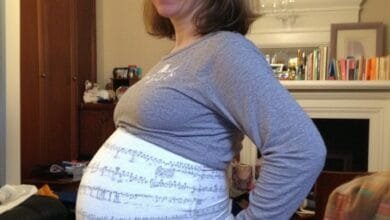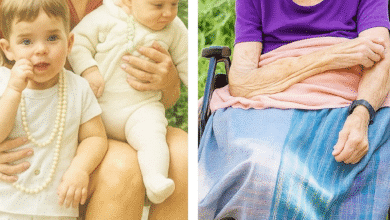The Camera That Revealed the Truth

Irina locked the car door and stood still, staring into space. In her trembling hands, she held an envelope she had just taken from the mailbox—another bill from the private clinic where her husband was hospitalized. The cold, heartless numbers seemed to float before her eyes, turning into silent accusations.
Her husband, Pavel, had been sick. For so long that his illness had become part of their routine. The expensive treatments brought no results, yet they drained everything: money, energy, even hope.
More than exhaustion or discouragement, what tore Irina apart was guilt. How could she not have noticed when a simple ailment turned into something so mysterious and debilitating? She was always buried in work, running her handmade toy shop. But maybe she should have stopped, looked into his eyes, and truly listened.
She vividly remembered the day Pavel was admitted to the clinic. The doctor gave a long explanation filled with medical jargon, but ended with a vague diagnosis:
— His body is simply exhausted. He needs complete rest.
— Exhausted? — Irina protested. — This is the 21st century! Can’t you find the exact cause?
The doctor just shrugged. Something about his attitude seemed false, superficial. Pavel, lying in white sheets, looked pale and distant. When they were alone, he whispered:
— Irina, let me go. I don’t want any more treatment, even if it’s free. I just want this to end.
In the following months, Pavel became more and more apathetic, always apologizing for being a burden. He even avoided asking for the smallest things, saying he wasn’t worth the expense.
Irina carried everything on her shoulders, supported by her toy business. Before he got sick, she had tried involving him in the work, thinking it might bring them closer. But he did everything poorly, took offense at every comment, and after one minor fight, went to bed—and never got up again.
One day, Irina received a call from her assistant saying a power outage had halted production at the workshop. Realizing she had unexpected free time, Irina decided to visit Pavel earlier. She bought the fruits he liked—peaches and nectarines.
At the clinic’s entrance, she saw a little girl, around nine years old, sitting beside a cardboard box that read: “Help for dad’s surgery.”
Irina approached gently:
— What happened, sweetheart?
— My dad, Anton, is here—in the free ward. He fell from scaffolding at work and needs urgent surgery, but… we don’t have any money — the girl said, eyes welling up.
Without thinking twice, Irina pulled out what she had in her wallet and placed it in the box.
— Thank you! Thank you so much!
Irina smiled and showed her a photo of Pavel, taken before he got sick.
— He’s been sick too. For a long time.
The girl gave her a strange look.
— Are you going to the private ward? — she whispered.
— Yes. Why?
She leaned in and said softly:
— Auntie… install a camera in his room. Just to be sure. Sometimes it helps uncover the truth.
The idea sounded absurd. But the seed of doubt was planted. On her way home, Irina stopped at an electronics store and bought a button-sized micro camera. “Just paranoia,” she told herself. “I just want to confirm he really needs rest—that the doctors aren’t lying.”
The next day, during her visit, Pavel complained again—about the fruit, about her tired face. A simple conversation turned into another argument. When it was time to leave, while he looked out the window, Irina discreetly placed the camera inside a book on the shelf.
Back in the car, she took a deep breath and turned on the live feed.
What she saw shattered her world.
As soon as the door closed, her “dying” husband jumped out of bed. He stretched, picked up his phone, and cheerfully said:
— Hey, babe! The bore just left. I had to fake being sick again. Just a bit longer, and everything will be ours—her money, her business… her entire life.
Minutes later, Doctor Vyacheslav entered the room without knocking:
— This Irina is exhausting. Every day it’s “How’s he doing? What do the tests say?” She’s driving me crazy.
— Don’t worry — Pavel replied — we’ll take care of her soon. Maybe scare her a little or force her to sign the company over to me. Simple.
As if that wasn’t enough, two young women came in with wine and snacks. Ten minutes later, there was music, dancing, laughter. The hospital room had turned into a party.
The next morning, Irina was no longer the same woman.
The guilt-ridden, exhausted wife was gone. In her place stood a determined woman ready to act. She called her assistant:
— I’m taking an indefinite leave.
Her first stop was a well-known lawyer.
— We’re going to destroy them.
But before that, she wanted to help someone who truly needed it. She went back to the clinic and found the little girl.
— Lisa, your father will have surgery. I’ve already paid for everything.
After the operation, Irina met Anton. A quiet, humble man in his forties, with kind, honest eyes. He thanked her sincerely.
When she learned Lisa would be alone in the dorm while he recovered, Irina offered:
— Let her stay with me. I have a big house.
Anton, deeply moved, agreed.
Later, Irina confronted the doctor:
— I’ve filed for divorce. The conversation with Pavel, the party, and the kidnapping plan are all with the police. Goodbye, doctor.
Two weeks passed.
Anton and Lisa moved in with Irina. It was supposed to be temporary… but days turned into weeks, and the once cold, empty house became full of laughter, warmth, and light.
Lisa thrived at school. Anton repaired, helped, and brought peace.
Something new began to blossom between Irina and Anton—slowly, gently, but real.
One evening, as they cooked together, Lisa said matter-of-factly:
— You two are a family. You just haven’t realized it yet.
They looked at each other and laughed. But in that laughter was joy… and hope.
That night, after putting Lisa to bed, they sat in the kitchen sipping tea, talking about pain, betrayal—and new dreams.
— Irina… You saved me and Lisa. I don’t know how to thank you.
— No need — she said softly. — You saved me too.
Later, Irina saw the news: Pavel and the doctor were being prosecuted. But she felt no hatred, no desire for revenge—only peace.
That chapter of her life had finally closed.





